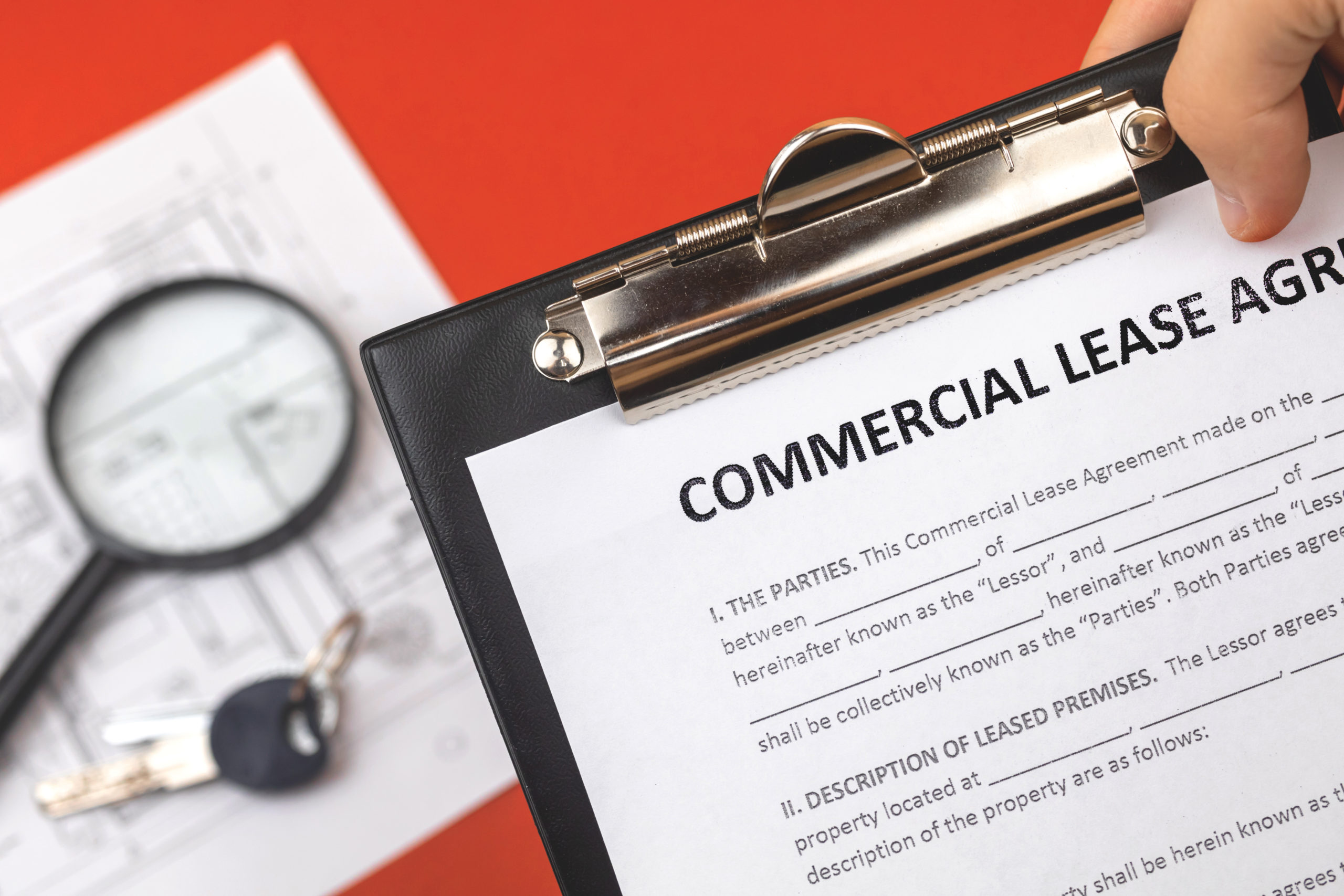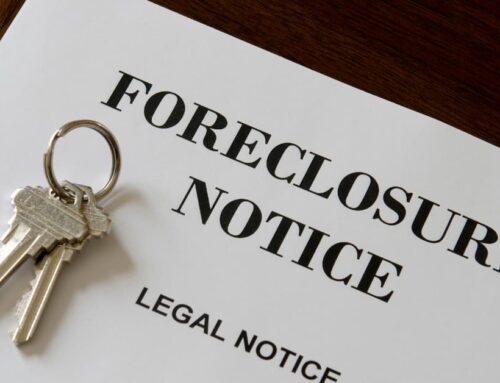A commercial lease, also called a commercial lease agreement, is a contract between a landlord (the owner of commercial property) and a tenant (the person or business that will lease commercial property). A commercial lease agreement outlines the rights, responsibilities, and contractual obligations of the landlord and the tenant.
The terms of a commercial lease are legally enforceable and binding on the parties involved. If one party fails to abide by or breaches the terms of the lease agreement, the other party has the right to take legal action against them and seek damages if necessary.
It should be noted that under Texas law, a commercial lease agreement can be considered enforceable only if it is in writing and signed by both parties. Oral contracts – while not prohibited under the law – cannot be enforced in court. With that said, a written lease is absolutely essential to safeguard your rights as a commercial tenant.
Key Elements of a Commercial Lease Agreement in Texas
Commercial leases in Texas typically include a wide range of details regarding the statutory as well as contractual duties and rights of the parties involved. These include:
- Name of the landlord
- Name of the tenant
- Address, square footage, and other details of the office space or commercial property in question
- The date on which the tenant is supposed to take physical possession of the property
- The lease term
- How the lease can be renewed (if the tenant wishes to do so)
- Amount of rent and the date on which the tenant must pay rent every month
- Amount of security deposit the tenant pays
- An outline of how the commercial space or property in question can be used by the tenant
- An outline of the modifications, renovations, or improvements the tenant can make to the property and who should pay for it
- Whether the tenant has the right to sublease or sublet the property to another party
- Circumstances under which the lease can be terminated or broken by either party
- Notice requirements for breaking or terminating the lease
- Whether there are any penalties to be paid in the event of an early termination
- Whether lease-related disputes can be resolved through mediation or arbitration
- If the tenant will need any form of insurance while renting the commercial property
- How the tenant must maintain the property space and keep it up to the standards of the building
- If there are any parking terms on where the tenant, their employees, and their customers are allowed to park; the number of spaces; and how much the tenant must pay, if anything
While there may be many long clauses and difficult terminology, each part of the lease is essential to protect you as a tenant and should be carefully reviewed with an attorney.
How Commercial Lease Agreements Differ from Residential Lease Agreements
Longer Lease Terms
Residential leases in Texas typically last for six months to a year, after which they can be extended if both parties wish to do so. Residential leases can even be signed on a month-to-month basis until one of the parties decides to terminate it.
Commercial leases, on the other hand, tend to last anywhere from 3 to 5 years. Based on this, as a tenant, you need to make sure you know what you are getting into. Otherwise, you might have to break or terminate the contract earlier and pay a hefty penalty.
Rigid Terms
The terms of a commercial lease agreement tend to be a lot more rigid compared to the terms of a typical residential lease agreement. Before you sign it, you need to make sure whether the terms of the agreement fit your needs and your business’s needs and whether you can abide by them.
Customized Agreements
Residential leases are standardized for the most part and include very similar terms and conditions. It is not the case with commercial leases, as each contract is customized to suit the needs of the landlord in question. It is why you cannot afford to overlook or ignore any detail – no matter how minor it might be.
Lack of Legal Protection
Unlike residential leases, commercial lease agreements in Texas are not governed by consumer protection laws. As a result, residential tenants enjoy more rights than commercial tenants. Moreover, Texas has the reputation of being a pro-landlord state, as the laws generally favor landlords over tenants. With that said, even a minor oversight or mistake on your part while signing the lease can prove to be costly down the line – both in terms of your time and money.
What Are the Different Types of Commercial Leases in Texas?
The most common types of commercial leases in Texas include:
- Gross lease
- Percentage lease
- Net lease
These three types of leases can be further divided into the following categories.
Full-Service Gross Lease
Under a full-service gross lease, you are required to pay a flat fee – which includes your base rent and your share of the operating expenses including utilities, taxes, property management fees, cleaning service charges, and other expenses.
Modified Gross Lease
Under a modified gross lease, you are required to pay a flat fee – which includes your base rent and your share of the aforementioned operating expenses. Plus, if there are any additional expenses in operating costs, you might be asked to pay for a portion of that increase as well.
Percentage Lease
Under a percentage lease, you are required to pay a flat fee which includes your base rent and your share of the operating expenses (much like a gross lease). Apart from this, you are also required to pay a portion of your business’s gross income. Meaning, the more revenue your business generates, the more you have to pay your landlord.
This type of lease is ideal for commercial properties like retail stores, shopping malls, and restaurants. One of the advantages of signing a percentage lease is that the landlord might be willing to work with you to promote your business and increase your sales, since the more you make, the more they stand to make.
Single Net Lease
Under a single net lease, you are required to pay the rent and property taxes.
Double Net Lease
Under a double net lease, you are required to pay the rent, property taxes, and building insurance.
Triple Net Lease
Under a triple net lease, you are required to pay the rent, property taxes, insurance, maintenance costs, utilities, and other operating expenses. These types of leases are extremely rare since they require the tenant to pay the lion’s share of the costs associated with the property. Correlating with this, under a triple net lease agreement, the base rent tends to be lower compared to other types of lease agreements.
Bondable Net Lease
Under a bondable net lease, you are required to pay the rent and all the other expenses that are normally covered under a triple net lease. Apart from that, you are also required to pay for the expenses associated with repairing or rebuilding the property after a fire or a natural disaster. These types of leases are even rarer than triple net leases.
Texas Lease Agreements – Key Things You Need to Know
#1. Use of Commercial Space
As a commercial tenant, you can use the space or property only for the purpose of operating your business. You cannot live in it or use it for other purposes – unless you are allowed to do so under the terms of the lease agreement.
#2. Security Deposit
Under Texas law, there is no cap or ceiling on the amount of security deposit that a landlord can charge. They are required to refund the security deposit in its entirety within a period of 60 days – from the date on which you move out. The landlord cannot make any deductions for the expenses associated with normal wear and tear. They can, however, make deductions for repairs – if you, any of your employees, or any of your patrons damage the property.
#3. Lockout
Texas law allows commercial landlords to lock out their tenants under the following circumstances.
- If the tenant fails to pay the rent
- If the tenant abandons the property
It should be noted that the landlord does not require a court order to lock out their tenant. In relation to this, after locking out the tenant, the landlord is required to affix a written notice on the front door. The notice must clearly specify the amount of rent to be paid by the tenant, plus when, where, and from whom they can get a new key after paying the rent.
#4. Tenant’s Property
If you leave your property or equipment behind while vacating the premises, your landlord is required to keep it (within the premises or in another location) for a period of 60 days from the date on which you vacated the property. If you fail to claim the property, your landlord has the right to sell it or get rid of it.
#5. Subletting or Subleasing the Property
In most other states, commercial tenants can sublet the leased premises – unless it is explicitly prohibited under the terms of the lease agreement. However, in Texas, you can sublet the leased premises only if it is allowed under the terms of the agreement.
#6. Length of the Lease
In every lease agreement, there will be a set lease term where at the end, you will be required to renew or move out of the building. It is important to note when initially reviewing your lease. You do not want to get stuck with extra fees or be forced to move out when you were not expecting.
#7. Rent Increases
If you are considering renewing your lease at the end of the term, you must know that it is legal for the landlord to increase your rent. In some cases, you may be able to put a cap into the commercial lease agreement on how much the landlord will be able to increase your rent.
#8. Changes to the Property
There will be a clause within the lease agreement stating whether or not you will be able to make any adjustments to the property itself. Some landlords may allow you to do so and some will not so be sure to review what is allowed to change within the property during your lease term.
Why You Need an Experienced Attorney on Your Side while Signing a Commercial Lease
Researching the Property
Before committing to any lease agreement, it is important to know the property, the property owner, and how it can affect your business. Key things to look out for are zoning laws, environmental laws, nuisance laws, and more. A seasoned real estate attorney will be able to explain to you all of the laws in the area so you fully understand any limitations before committing to a long-term lease. An attorney will be able to guide you in a direction that is in your best interest.
Reviewing Commercial Lease Terms
Commercial lease agreements can be significantly complicated to comprehend for the average person. The agreement might contain several terms, clauses, and provisions that you might not know. A committed Texas commercial lease attorney can review the terms of the lease, explain how they work, help you understand how they can impact you and your business, making sure you know what you are getting into.
Less Regulation for Commercial Lease Agreements
It is also important to understand that commercial leases are less regulated than residential leases, which offer less protection. An attorney will make you fully aware of how you can be affected when signing a commercial lease. You should know what your rights are before going to the next step in the process so you don’t waste your time on a space that will not be workable for your business.
Understanding Payment Structure
One of the most important sections in a lease agreement is the payment structure. It is essential for you to know exactly how much you will have to pay, when your fees will be due, how to pay them and what your money is going towards, whether it is rent, utilities, parking, or anything else the landlord may want you to pay. An attorney will be able to walk you through this process and may be able to negotiate the monthly amount the landlord is requesting.
Negotiating the Terms of the Lease
Your attorney can negotiate on your behalf with the landlord and make sure the terms of the lease agreement are favorable to you and your business. For instance, your attorney might be able to get the landlord to pay for the improvements to the property – as long as you are willing to sign a long-term lease.
Similarly, your attorney might be able to get the landlord to sign an exclusive-use contract, under which they cannot lease any other portion of their property to a competing business. For example, if you open a coffee shop in a commercial real estate property, the landlord cannot lease another portion of the same property to another coffee shop.
Protecting Your Rights
Each commercial lease agreement is different and is generally tailored to suit the needs of the landlord. Some of the terms in these agreements can be unfavorable or downright unfair to the tenant. A skilled attorney can review these terms, determine whether they infringe on your rights as a tenant, and whether they can adversely impact your business’s growth and expansion. They can also negotiate with the landlord to amend or remove the unfavorable terms from the contract.
Dispute Resolution
In the event of a dispute with your landlord regarding any terms and conditions related to commercial and residential leases, paying rent, or paying property taxes, your attorney can represent you and assess the situation. The attorney can determine whether the landlord violated or breached the terms of the contract, and take legal action if needed to protect your rights and seek damages or remedies from the landlord.
Choose an Experienced Texas Commercial Lease Lawyer to Protect Your Interests
The terms of a commercial lease agreement can impact your business in more ways than you can imagine. It’s why you need to hire a competent Texas commercial lease lawyer to review and negotiate the terms of the agreement on your behalf. Having an attorney explain the process of drafting a lease and its terms is essential for anyone before they commit to a costly investment for their business. In the long run, hiring an attorney may be more cost-effective for you because they will be able to negotiate and protect your business.
Why Choose Kelly Legal Group
At Kelly Legal Group, we have highly skilled attorneys with a thorough understanding of the Texas Property Code and decades of combined experience in drafting commercial lease agreements. With a team of diverse backgrounds and interests, we offer a unique perspective that can help you with all of your needs. We can draft a customized lease agreement that protects your rights and your business interests. The Kelly Legal Group takes pride in being honest and transparent as we work hard to get you the best possible outcome. We also take a team approach by communicating everything with our clients in a timely manner whether it is via email or phone.
We are aware of the intentionally ambiguous terms, clauses, and provisions that landlords tend to include in commercial lease agreements in order to gain leverage over their tenants. We will review each and every line of the agreement, make sure all the terms are in compliance with the law, and negotiate with the landlord to amend or remove any terms that could violate your rights as a tenant or harm your business interests.
In case of a dispute with your landlord, we can represent you and resolve the dispute through negotiation or arbitration. If needed, we can take legal action to safeguard your rights and hold your landlord accountable for violating the terms of the lease agreement. We understand this can be a timely, costly, and stressful experience so we are here to take it off of your hands and give you a team of highly experienced professionals.
Call our firm today at 512-505-0053 or write to us online using our contact form and schedule a free consultation with one of our seasoned Texas commercial lease lawyers.






